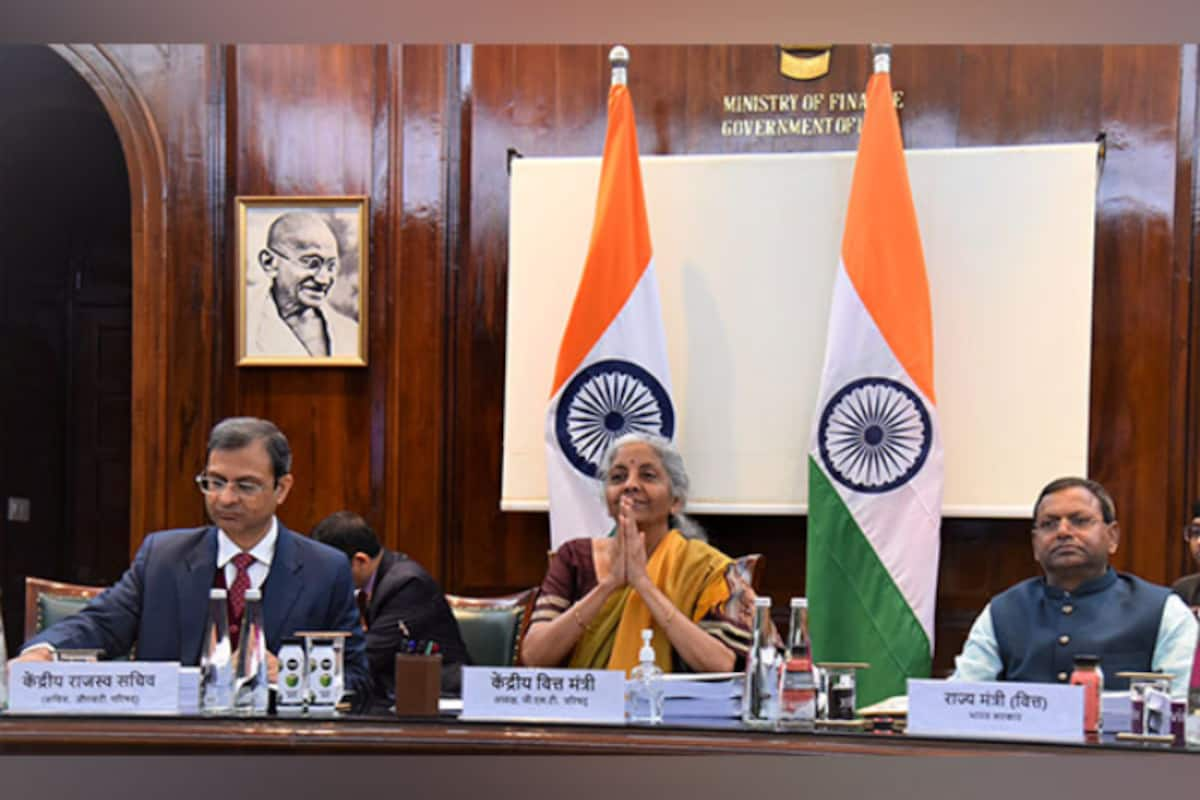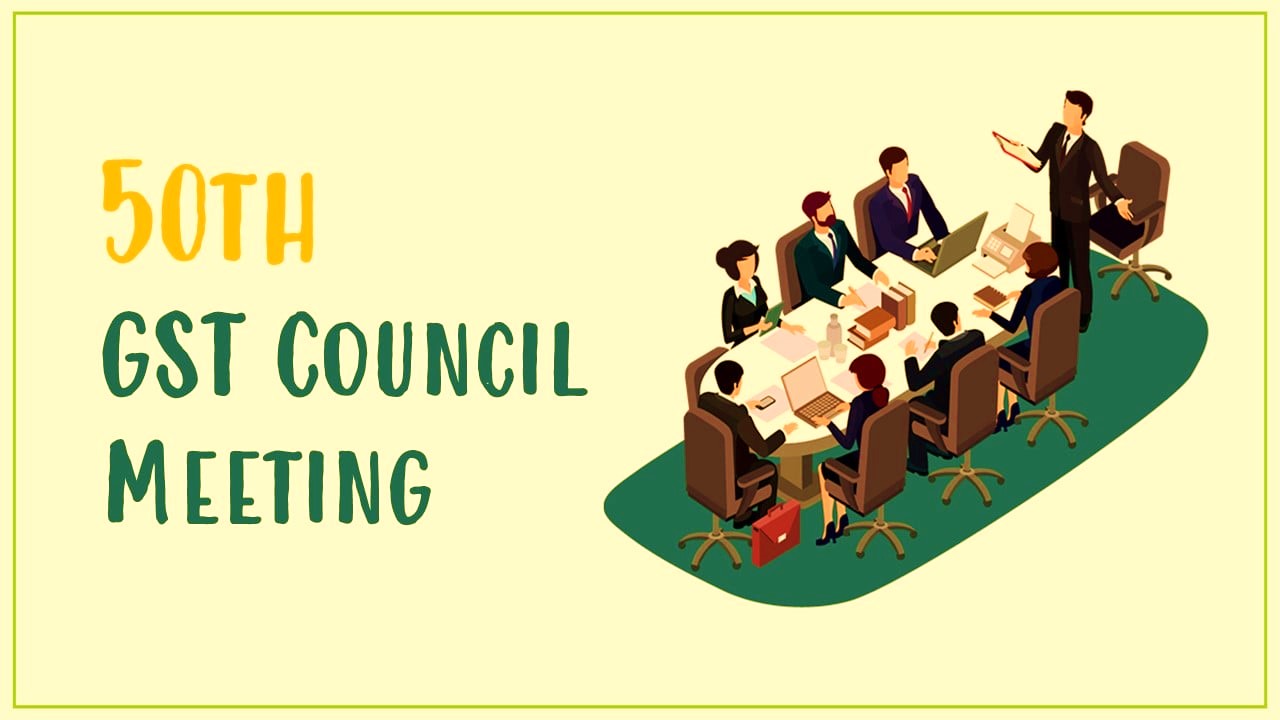GST Council Meeting 2023: Likely Deliberations on Key Taxation Issues and Reforms

GST Council Meeting 2023: Likely Deliberations on Key Taxation Issues and Reforms
Nirmala Sitharaman, the finance minister, will preside over the 50th meeting of the GST Council, which a group of state delegates will attend.
The 50th meeting of the GST Council will take place later today. Utility Vehicle definition, strengthening the standards for registration and claiming an input tax credit, and taxation on online gaming are some essential topics expected to be on the agenda. Finance Minister Nirmala Sitharaman will preside over the Council, and a group of state delegates will be present.

The GST Council, India’s apex body for decision-making on all issues related to the Goods and Services Tax (GST), is set to convene for its forthcoming meeting in 2023. With the Indian taxation system’s growing complexity and the ever-increasing need for reforms, the Council will likely deliberate on several key taxation issues.
Earlier in July, Finance Minister Nirmala Sitharaman said, “The GST Council meetings have become the shining examples of cooperative federalism, where the Centre and States have deliberated, discussed, and decided on various complex issues to make GST more responsive and nuanced.”In the meantime, a recent Deloitte study revealed that India Inc. has endorsed the GST regime’s positive momentum after six years and is eager to advance the second phase of changes to ease business. The Deloitte survey’s respondents agreed that an amnesty programme needed to be implemented to resolve ongoing tax disputes that were sapping government income and corporate capital.

The GST Council was created in 2017 under the GST Act. It is composed of the Union Finance Minister, who chairs the council, Each State government nominates a Minister responsible for Finance or Taxation to join the Union Minister of State in charge of Revenue or Finance on a committee.The Council has seen regular meetings since its inception, with each one aiming to streamline and improve India’s GST framework.
The 2023 meeting comes when the Indian economy is striving to recover from the residual impacts of the COVID-19 pandemic and ensuing global economic challenges. With this backdrop, the Council’s decisions could be pivotal in the country’s economic resurgence.
The meeting is expected to revolve around the persisting issue of GST revenue shortfall and compensation to states. Since the implementation of GST, revenue collections have often needed to catch up to the expected targets, impacting the states’ fiscal positions. The Council must deliberate on robust measures to boost revenue collections, streamline the compensation mechanism, and mitigate the states’ concerns.

One of the significant issues likely to be discussed is the rationalization of GST rates. GST has multiple rate slabs, which has often led to classification disputes. There is a growing demand for simplifying the rate structure and reducing the number of slabs, which can enhance the ease of doing business.
Tax evasion and fraudulent input tax credit claims have been persistent issues plaguing the GST regime. The GST Council will likely discuss tightening the GST compliance requirements and using advanced technologies like data analytics and artificial intelligence to detect and prevent fraudulent activities.
The Council might consider expanding the GST base by including sectors outside its purview, such as petroleum products and alcohol for human consumption. Such inclusion can significantly boost GST collections and reduce the economic distortions caused by multiple taxation regimes.

To enhance compliance, the Council could propose simplifying the return filing process and automating tax credits, thereby reducing the burden on businesses, tiny and medium enterprises (SMEs).
With the rising need for digitalization, the GST Council might explore an upgraded IT infrastructure for GST administration. This infrastructure can integrate various aspects like registration, return filing, refund processing, and grievance redressal, improving efficiency and transparency in the system.
According to Mahesh Jaising, who is the Partner and Leader for Indirect Tax at Deloitte India, the statistics indicate that the GST revenue has increased by 22% YoY. This demonstrates the government’s focus on taxpaying and overall economic progress. According to the report, the streamlined tax system favours enterprises of all sizes, with Micro, Small and Medium Enterprises (MSMEs) reaping the most benefits. The greater consistency of the GST system is blamed by almost 88% of MSME respondents for the decreased cost of products and services.

Jaising continued, “While the sentiment towards the GST regime among businesses in India remains positive and better than our survey last year, there is a push to dispel legislative ambiguities around input service distribution (ISD) vs the cross-charge mechanism, self-supplies, and deemed valuation to ensure uniformity in the taxation system. We also discovered a tendency for the GST law’s export rule liberalization, with 78% of respondents considering it as the most important stimulus, followed by the release of working capital, lifting ITC limitations, and eliminating “deemed supply” prohibitions.

As the GST Council meeting draws near, all eyes will be on the outcomes of these critical deliberations. The Council’s decisions will shape the GST regime’s future and significantly impact India’s economic trajectory. It is hoped that the Council will find a balance between the state’s revenue concerns and the private sector’s desire for a simplified, growth-oriented tax regime.




